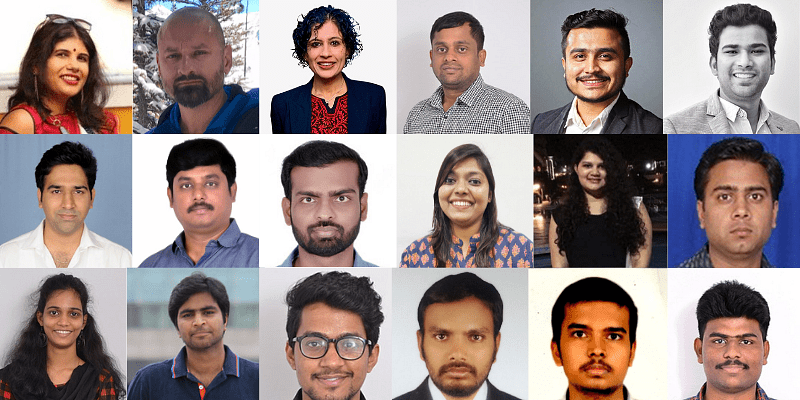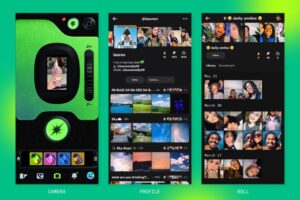The shift in the education ecosystem over the past few years has seen the laptop or hand-held screen replacing the blackboard. The change has been brought about by the digital revolution that has touched every aspect of our lives. With more than 3.5 billion people accessing the internet and 5 billion owning mobile devices – half of them smartphones – this connectivity boost has transformed how people teach and learn, and how learning is delivered.
The AI boon
Traditional content curation methods are being put on the backburner, with technologies like Artificial Intelligence (AI) and Machine Learning (ML) helping to democratise information dissemination by offering powerful solutions to individual learners, companies, and educational institutions. Adoption of these changes accelerated after the COVID-19 pandemic forced closure of physical classrooms. Online learning became the new normal with institutions embracing technology for learning continuity.
Every day, we are reaping the benefits of AI simplifying our lives. From facial recognition locking and unlocking our phones, to smart assistants on our bedside tables operated by verbal commands, this disruptive technology is an integral part of all our activities in modern life. From reducing administrative tasks for teachers to making learning customised for individual student needs, AI is streamlining the entire education process. It has revolutionised education by introducing two critical processes – gathering data related to every single step in a learner’s journey, and instantly converting this data into actionable insights.
Hurdles in the sector
While technology such as AI has smoothened things considerably, significant challenges continue to dog the e-learning ecosystem.
Traditional methods of offering and curating content factored out a vast number of people, creating a barrier to learning. Nearly 217 million people in the world have moderate to severe vision impairment and 826 million live with near-vision impairment. They face severe accessibility challenges and are often compelled to drop out of the traditional learning curriculum. The problem is compounded because educational institutions and corporations find it time consuming and expensive to make their content and programmes accessible.
An enormous number of inherently inaccessible PDFs were also a key challenge. PDFs consisting of scanned pages are really a series of images, and therefore inaccessible to screen readers. The content must go through OCR (Optical Character Recognition) to convert an image or scan into a file with separate text, images, lists and tables–a process that can be lengthy and painful.
Making Science, Technology, Engineering and Mathematics (STEM) content universally accessible was another major stumbling block in the sector. Accessibility is an expensive proposition: for an average higher education STEM textbook to be made accessible, the cost can be anywhere between $10K and $100K, requiring skilled subject matter experts and 2-3 months of authoring and review. Also, STEM courses have unique barriers to overcome when it comes to designing accessible materials. Tables, graphs and equations, which enable learners to comprehend the concepts accurately, make the content even more difficult to access.
Though the task of making web content accessible is not an easy one, advanced deep-learning AI technology is providing tools that can fix many accessibility issues to save time, improve accuracy, and meet industry standards. In addition, inclusive design is making products effective, efficient and satisfying, keeping user experience in mind for not just physically challenged learners, but everyone.
Making learning content accessible
Edtech startup Continual Engine is making a real difference in the learning space by making learning inclusive and equitable through use of technology. Invicta, Continual Engine’s cloud-based platform, leverages AI to generate precise long descriptions for STEM images, opening up STEM disciplines as learning areas to pursue for people with physical disabilities. The company is excited to launch their next-gen Invicta APIs for STEM image analysis. Leveraging the power of AI and Computer Vision, Invicta APIs extract, analyse, interpret, and digitise the salient points of images in LaTex, JSON, HTML, or XLSX formats. This information is then used to automate the authoring of alternate text description for images to make them accessible, tag images to make them searchable and create learning aids for all students, including those without disabilities. For this startup, designing for accessibility has been synonymous with designing for humanity.
Their proprietary product PREP automates the tagged structure tree of PDFs, including complex content like tables or equations, and provides a logical reading order. Keeping their commitment towards accessibility, the company is partnering with leading publishers and higher-ed institutions to expand accessibility coverage by saving costs, reducing cycle time and improving quality.
Cohort 9 of NetApp Excellerator
Continual Engine is privileged to be a part of cohort 9 of NetApp Excellerator, the latter’s flagship start-up accelerator program. The startup’s game-changing products and solutions have been tested for product market fit with multiple global customers and they are now looking to scale up. Being part of cohort 9 will help the startup get industry insights and market access, garner attention of global investors, and expand business.


![Read more about the article [Funding alert] Dunzo raises $240M led by Reliance Retail](https://blog.digitalsevaa.com/wp-content/uploads/2022/01/Founders-Dunzo-1601812351244-300x150.jpg)




![Read more about the article [Funding alert] Neobank platform moneyHOP raises $1.25M in seed round](https://blog.digitalsevaa.com/wp-content/uploads/2021/09/f8896e04d0c9abe7e8dc05f33f9c3d60ae885cf5661840d3e1f9523278e65e3a-1630478297750-300x150.jpg)


